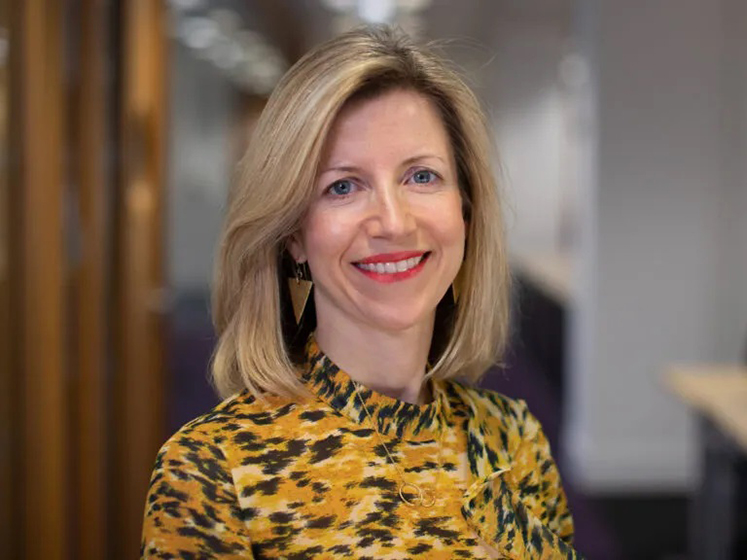 Tell us about your journey since graduating from LSE
Tell us about your journey since graduating from LSE
After my MSc graduation, I first got a job as a policy researcher at the Sport and Recreation Alliance, the membership body representing the sports governing bodies, everything from the Football Association to small dance bodies. I spent a fair amount of time in parliament as I provided the secretariat to the APPG on Sport. I had worked as a part time parliamentary researcher for Ann Taylor MP as part of my LSE course, so was familiar with the workings. I then moved to Cancer Research UK, where I spent over 15 years in a variety of roles. I joined as a public policy researcher, and worked in different senior policy and public affairs roles, which included a secondment in 2010 to the Department of Health to write a national cancer strategy, before joining the Board in 2012, as Executive Director of Policy, Information and Communications.
I had a brilliant 8 years on the Board, growing Cancer Research UK’s policy, analysis, media and patient engagement work, and worked on many public health campaigns including the smoking ban, the plain packaging of cigarettes and a big push for earlier cancer diagnosis.
The non-executive work I have done has both shaped and reinforced my passions. I’ve been a trustee of medical research charities, MQ Transforming Mental Health, the Association of Medical Research Charities (the umbrella body for sector), and the National Cancer Research Institute, and other campaigning and service providing charities, ASH (Action on Smoking and Health), Bliss the special care baby charity, and I’ve chaired the Healthy Air Coalition. I’ve learnt a huge amount about running different organisations, advocating for change and turning evidence-based policy into practice.
In 2020, I joined Asthma + Lung UK as CEO, to oversee the merger of the two largest national respiratory charities (Asthma UK and The British Lung Foundation), devise a new strategy, develop a new brand, and begin delivery of our vision to transform UK lung health. I had an amazing 3 years building a new organisation and advocating for a better deal for the 8 million living with a lung condition. As part of this role, I Co-Chaired England’s National Respiratory Board, to drive improvements in lung health through the NHS.
I’ve recently joined The King’s Fund as CEO. Our health and care system, like so many across the world, is facing unprecedented challenges, so it’s an important and exciting time to be considering how best we shape our services for the future. We publish evidence and thought leadership about how to improve health and care. We also play and important convening role and train health and care leaders.
If you could tell your younger student self one piece of wisdom, what would it be and why?
That all learning and experience is helpful! Occasionally if I have been frustrated in a role, or not having the most fulfilling time, I learnt how not to do things, or reflected on what I’d change. I wish I’d known that in the moment.
How has studying in the Department of Government helped you since graduation?
My undergraduate degree gave a fantastic base of knowledge – how governments (should) work, and the science and art of policy making - which has stood me in good stead. I’ve always enjoyed the international work I’ve undertaken and learning policy lessons from across the world. The grounding and context in comparative analysis during my MSc has given me confidence to pursue international partnerships.
What’s been the highlight of your career so far?
My time at Asthma + Lung UK was exciting and face-paced, and I learnt so much in a short space of time as it was a transformation job: merge organisations, new strategy, new name and brand, new internal systems and culture. It was a wonderful opportunity to drive change quickly.
What are the advantages of working in the public/charity sector?
In the charity sector, I love the mission-led approach, the independence, and in my case in health, the closeness to beneficiaries. Sitting in a support group with people struggling to breathe certainly focuses the mind on what a charity should and could be doing to help. Charities can often be agile and innovative too, trying new services and putting policy into practice much more quickly than the public sector.
Where I’ve worked with and in the public sector, I’ve appreciated an evidence-led approach to driving change, particularly when I was developing cancer policy in the Department of Health.
What is your fondest memory from LSE?
I have so many fond memories, but it’s probably the friendships that I made that I value the most. A gang of us who lived in Rosebery Halls are still great friends, and we have lots of memorable nights in The Tuns to reflect on. I also met my partner at LSE, and 15 years and 4 children later, that’s a pretty good outcome too!